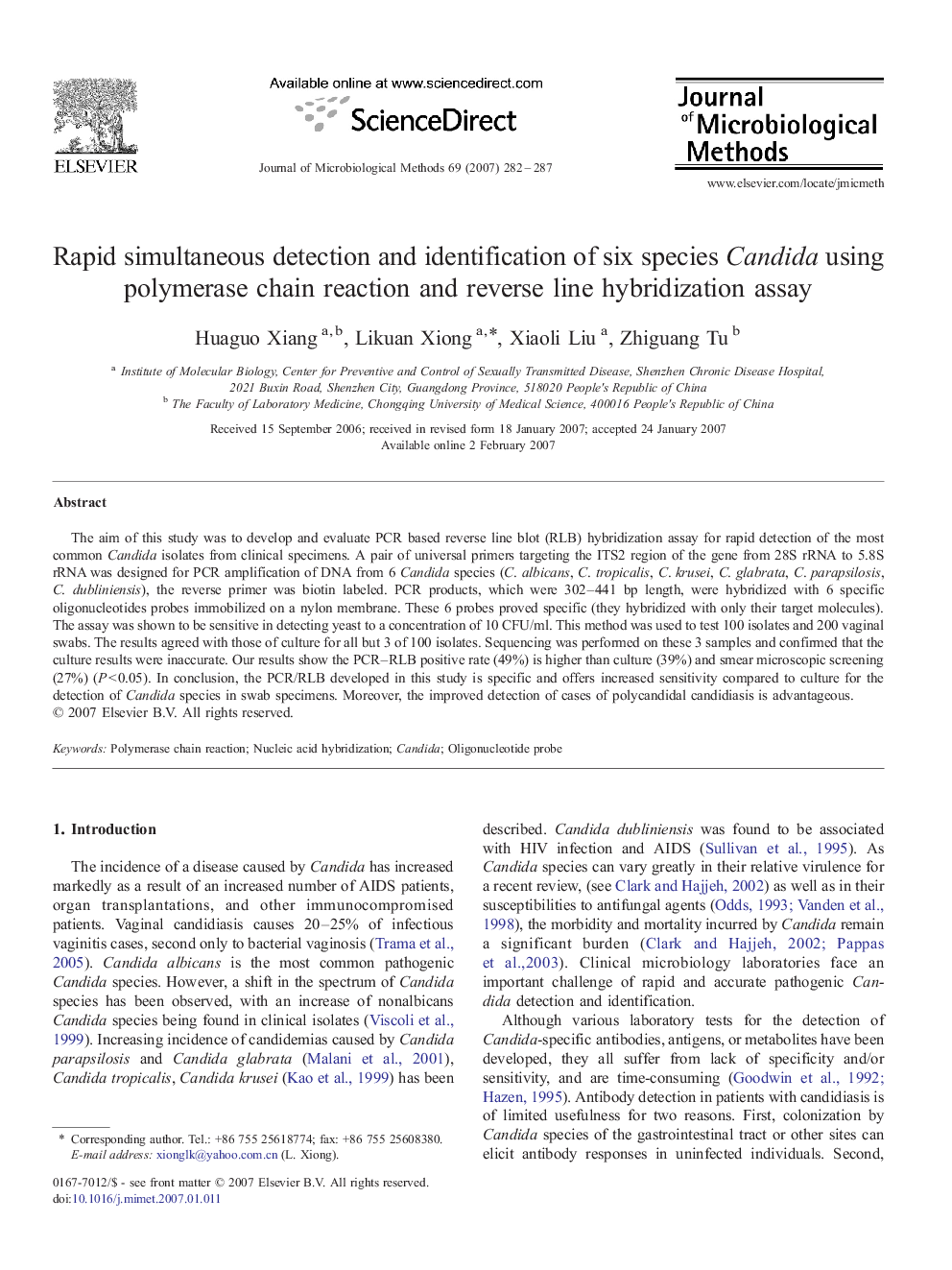| Article ID | Journal | Published Year | Pages | File Type |
|---|---|---|---|---|
| 2091820 | Journal of Microbiological Methods | 2007 | 6 Pages |
The aim of this study was to develop and evaluate PCR based reverse line blot (RLB) hybridization assay for rapid detection of the most common Candida isolates from clinical specimens. A pair of universal primers targeting the ITS2 region of the gene from 28S rRNA to 5.8S rRNA was designed for PCR amplification of DNA from 6 Candida species (C. albicans, C. tropicalis, C. krusei, C. glabrata, C. parapsilosis, C. dubliniensis), the reverse primer was biotin labeled. PCR products, which were 302–441 bp length, were hybridized with 6 specific oligonucleotides probes immobilized on a nylon membrane. These 6 probes proved specific (they hybridized with only their target molecules). The assay was shown to be sensitive in detecting yeast to a concentration of 10 CFU/ml. This method was used to test 100 isolates and 200 vaginal swabs. The results agreed with those of culture for all but 3 of 100 isolates. Sequencing was performed on these 3 samples and confirmed that the culture results were inaccurate. Our results show the PCR–RLB positive rate (49%) is higher than culture (39%) and smear microscopic screening (27%) (P < 0.05). In conclusion, the PCR/RLB developed in this study is specific and offers increased sensitivity compared to culture for the detection of Candida species in swab specimens. Moreover, the improved detection of cases of polycandidal candidiasis is advantageous.
